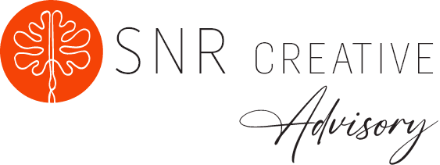In the past three weeks, I have lost my voice two times. The first time was scary, primarily because I use my voice for work, and I am not just talking about the run-of-the-mill chatting with colleagues and clients. In addition to “normal” professional communication, I executive produce and co-host a weekly radio show and am hired to speak routinely on various topics related to leadership, business, and, ironically, public speaking. Needless to say, not having a voice is a bit of a problem for me.
The first time my voice disappeared, I was (slightly) panicked, and I canceled all sorts of things and prayed for my voice to return ASAP.
In the second wave of “voiceless SRS,” I was much more Zen about the whole thing. When I woke up voiceless, I thought, “Ok, here we go. What learning can I apply from my last bout of silence to this one? How can I use this quiet time to be a better listener and perhaps be productive in a different way?” I was determined to find the “win” in my forced silence.
As is my practice, I decided to turn my odd predicament into an experiment. Since my first science fair project in middle school, I have loved creating a hypothesis and testing it to see if it proves true—either I’ll be correct or I’ll learn, both of which give my “sidewalk scientist” brain a dopamine boost. I hypothesized that being quiet would allow me to eavesdrop on other people’s conversations and maybe learn something cool or at least hear something interesting.
To carry out my experiment, I found a coffee shop where I could sit, read, journal (maybe), and observe humanity. I was selective in my coffee shop choice. I chose to visit an independent coffee shop that was a bit off the beaten path—Mercantile. I sat at Mercantile for 2.5 hours and almost finished an entire book I found there (more on that later) and observed some fascinating conversations ranging from how a person who teaches meditation and mindfulness to people in recovery felt utterly lost and unable to access those tools when their partner had a stroke. The “lost” teacher found a meditation room at Methodist Hospital, sat there in silence, and slowly but surely was able to coach themselves back into practice.
In addition to the above antidote, I picked up the following nuggets from my eavesdropping experiment:
- “Struggle is progress, not failure. Lots of people think that if they are struggling, they have failed, but that’s not true. The fact that you are struggling means there is consciousness and forward movement.”
- “Success is in the doing, not the attaining.”
- “In theory, forgiveness is permanent, but insight isn’t. The insight that leads you to forgive yourself or someone else might leave you, so you might have to work to get it back again and again. It’s worth the effort.”
Engaging and insightful, right? I thought so, too.
Beyond this conversation, I observed all sorts of things that renewed my hope in humanity, from the barista who graciously read my order on my phone (yes, I typed out my order before I got to the counter versus trying to mime it and holding up the line!) to the lovely lady who saw me approaching the door with both of my hands full and got up from across the coffee shop to come and open the door for me, to the couple who were politely talking it out and until they got their directional bearings vs. blaming each other for a wrong turn, to the guy who saw my book and stopped to ask me if it was good because it was on his list to buy.
When I mimed to him that I had no voice, he apologized (there was no need; how would he know?). I handed him the book and motioned that it was “two thumbs up” good. He thanked me and went on about his day.
I left Mercantile with a smile and a lifted spirit. And I wonder how much we might miss out on the type of goodness I experienced because we are so busy talking.
A day or two of voluntary silence from time to time might do us all good.





